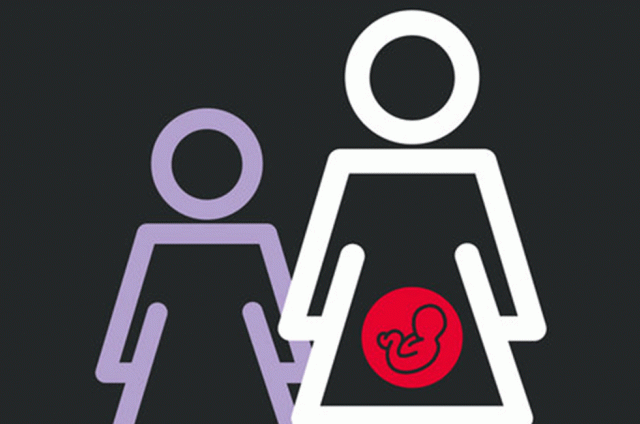Hormones, menstrual cycles, and periods
Changes in hormone levels means that epilepsy treatment may need to change through a woman’s life. In this section, when we refer to women, this also includes girls of childbearing age.
Hormones
Epilepsy can be different for everyone, and changing hormone levels in the body may affect some women and not others. For some women with epilepsy, there may be a close link between hormones and epileptic seizures.
Hormone levels change throughout a woman’s life and may affect when her epilepsy starts, how often her seizures happen, and if and when she stops having seizures.
Changes in hormone levels can make managing epilepsy different for women to how it is managed for men. It may also explain why epilepsy treatment for women may need to change over time.
Oestrogen and progesterone are hormones naturally produced in a woman’s body, which bring about sexual development, menstruation, and pregnancy. They can speed up or slow down brain activity and can affect when a woman has seizures.
Talk to your doctor or epilepsy specialist nurse (ESN) if you have questions about how your hormones could affect your epilepsy.
Puberty
Puberty is the time in life when hormonal changes in the body cause sexual development to begin. It can also be a common time for epilepsy to start.
Puberty can be a time when you don’t want to feel different from your friends, and having epilepsy can be an added challenge. Some women or girls may be concerned about how hormones may affect their epilepsy, periods, or their menstrual cycle.
Most people are prescribed anti-seizure medication (ASM) to try and stop seizures from happening. As with any medication, ASM can cause side effects in some people. Side effects may differ from one person to another. Some side effects can affect an unborn baby in pregnancy.
Catamenial epilepsy
Because of the changes in hormone levels that happen throughout the menstrual cycle, one in three women with epilepsy finds that their seizures are affected by their periods.
Some women regularly have their seizures just before or during their period, or at ovulation (mid menstrual cycle). Women who have their seizures only at these specific times during their menstrual cycle (and at no other time), may have catamenial epilepsy.
Keeping a seizure diary and noting down periods can help to see if there are any patterns to when they happen.
Women with catamenial epilepsy may be prescribed a contraceptive injection, such as Depo Provera. This may reduce seizures for some women as it stops their regular cycle.
An extra ASM, in addition to their regular ASMs, may be prescribed for the week before and during the first few days of their period.
If you think you may have catamenial epilepsy, you can discuss what treatment options may be suitable for you with your specialist or (ESN).
Polycystic Ovary Syndrome
Polycystic Ovary Syndrome (PCOS) is a common hormonal condition where eggs from the ovary do not develop properly. Eggs are usually released each month during ovulation. For women with PCOS, eggs are not released in the usual way but stay in the ovary forming non-harmful cysts.
PCOS may be more common in women with epilepsy. It may also be more common in women who take certain ASMs such as sodium valproate, or who gain weight, which can be a side effect of some ASMs.
If you are concerned about PCOS, talking to your specialist might help, as changing your ASM can sometimes stop or reverse these effects. As for everyone with epilepsy, it is recommended that you talk to your specialist before making any changes to your ASM.
Further information
National Institute for Health and Care Excellence.
nice.org.uk/guidance/ng217
Guidance on the diagnosis and treatment of epilepsy.
Epilepsy Society is grateful to Dr F J Rugg-Gunn, Consultant Neurologist & Honorary Associate Professor Clinical Lead, Chalfont Centre for Epilepsy, who reviewed this information.
Information updated: September 2023
Osteoporosis and epilepsy
Epilepsy and taking anti-seizure medication (ASM) may contribute to the risk of developing osteoporosis for some people.
Contraception and epilepsy
Some methods of contraception may be less effective in preventing pregnancy for women taking certain anti-seizure medication (ASM). This is because some ASMs affect how well methods of contraception work.
Menopause and epilepsy
Taking hormone replacement therapy (HRT) may increase the risk of seizures for some women with epilepsy.
Want to know more?
Download our Women and girls leaflet:
Download the PDF (pdf 1,229 KB)
For printed copies, please call our Helpline on 01494 601 400. Please note - we require a purchase order for bulk orders.
Information updated: September 2023

